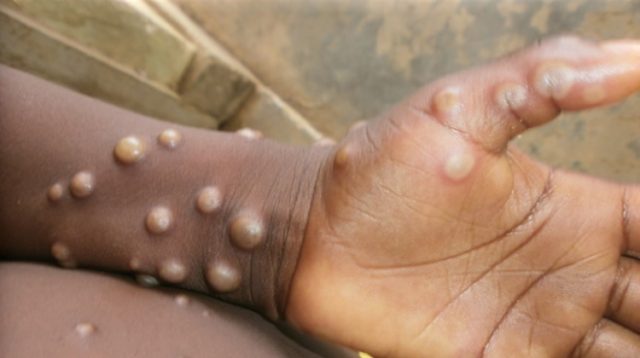Monkeypox is a rare viral disease that can cause serious illness in humans. Understanding the symptoms of monkeypox is important for early detection and treatment, which can help prevent the spread of the virus and reduce the severity of the disease. These are some symptoms of monkeypox.
1. Fever
One of the earliest symptoms of monkeypox is a sudden onset of fever. The fever is usually high and may be accompanied by chills. This symptom typically appears 5 to 21 days after exposure to the virus.
2. Headache and Muscle Aches
Along with fever, people infected with monkeypox often experience severe headaches and muscle aches. These symptoms can be intense and may be mistaken for the flu or other common viral infections.
3. Swollen Lymph Nodes
A symptom that distinguishes monkeypox from other similar diseases, like smallpox, is the swelling of lymph nodes (lymphadenopathy). Swollen lymph nodes usually occur in the neck, armpits, or groin and can be painful. This symptom typically appears a few days after the fever begins.
Read Also: 5 causes of Monkeypox you should know
4. Fatigue
Fatigue or extreme tiredness is another common symptom of monkeypox. This feeling of weakness may persist throughout the course of the illness, making it difficult to carry out daily activities.
5. Rash
A rash is one of the most recognizable symptoms of monkeypox. The rash usually starts on the face and then spreads to other parts of the body, including the palms of the hands and soles of the feet. The rash progresses through several stages:
– Macules: Flat, red spots on the skin.
– Papules: Raised bumps that develop from the macules.
– Vesicles: Fluid-filled blisters that form on top of the papules.
– Pustules: Blisters filled with pus, which are painful and may cause itching.
– Scabs: The pustules eventually scab over and fall off, leaving scars.
The rash can be widespread and is often one of the most distressing symptoms for those affected.
6. Respiratory Symptoms
In some cases, people with monkeypox may experience respiratory symptoms such as a sore throat, cough, or difficulty breathing. These symptoms can occur if the virus enters the respiratory tract, either through inhalation or from the rash spreading to the mouth and throat.
Recognising the symptoms of monkeypox early is necessary for effective treatment and preventing the spread of the virus. If you suspect you or someone you know may have monkeypox, contact a healthcare professional right away.
